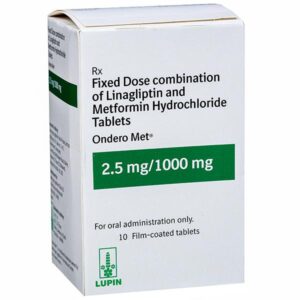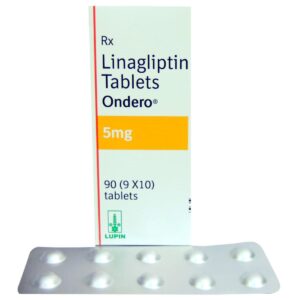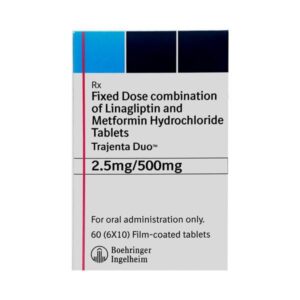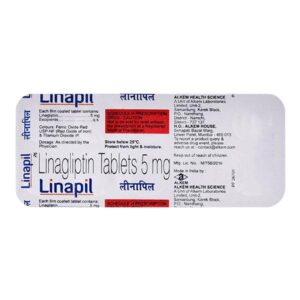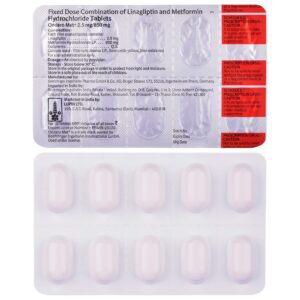LINAGLIPTIN
LINAGLIPTIN: LINAGLIPTIN is an oral medication primarily used for the treatment of type 2 diabetes mellitus. It belongs to a class of drugs called dipeptidyl peptidase-4 (DPP-4) inhibitors.
The main mechanism of action for LINAGLIPTIN is the inhibition of the DPP-4 enzyme, which plays a role in the breakdown of incretins. Incretins are hormones that are released after a meal and help to regulate blood sugar levels by increasing insulin secretion and decreasing the production of glucose by the liver. By inhibiting DPP-4, LINAGLIPTIN prolongs the activity of incretins, leading to an increase in insulin release and a reduction in blood glucose levels.
The usual recommended dose of LINAGLIPTIN is 5 mg taken once daily, with or without food. It is important to take the medication as prescribed by a healthcare professional.
Common side effects of LINAGLIPTIN may include stuffy or runny nose, sore throat, headache, joint pain, and stomach pain. These effects are usually mild and short-lived. However, if you experience more serious side effects such as severe allergic reactions, pancreatitis symptoms (severe stomach pain, nausea, vomiting), or signs of liver problems (yellowing of the skin or eyes, dark urine, abdominal pain), you should seek immediate medical attention.
It is important to note that LINAGLIPTIN should not be used in patients with type 1 diabetes or diabetic ketoacidosis. It should also be used with caution in patients with kidney problems, as the drug is eliminated from the body primarily through the kidneys.
As with any medication, it is crucial to consult with a healthcare professional before starting LINAGLIPTIN to determine if it is appropriate for your specific condition and to discuss any potential drug interactions or contraindications.


